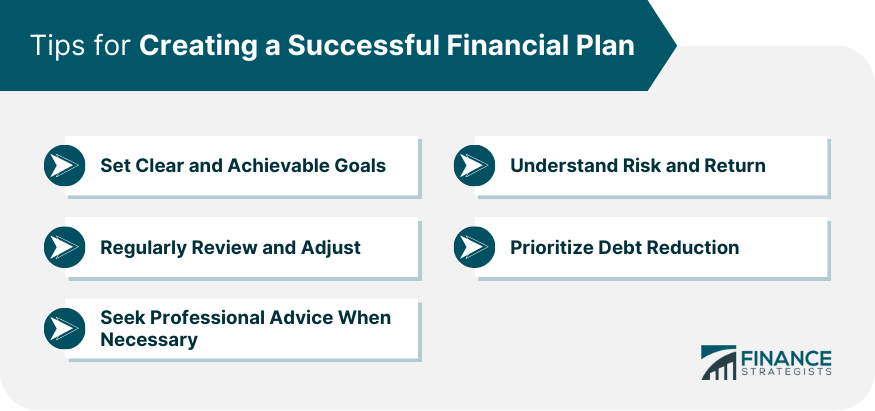What is Financial Health?
Financial health refers to the state of one’s personal monetary affairs. It encompasses an individual’s ability to meet financial commitments, feel secure in their financial future, and make choices that allow them to enjoy life.
Having robust financial health signifies more than being debt-free or having significant savings.
It is the peace of mind you experience when you know you are equipped to handle emergencies, can afford leisure without guilt, and are on track for future aspirations like homeownership, higher education, or retirement.
Assessing Your Financial Health
Evaluate Your Income and Expenses
The foundation of any financial assessment begins with understanding your cash flow. This requires a comprehensive review of:
- Sources of Income: These can range from regular paychecks to passive income streams like rental income or dividends. Regularly updating and evaluating these sources can ensure that you’re maximizing your earning potential.
- Fixed and Variable Expenses: While fixed expenses, like rent or mortgage, remain constant, variable expenses, such as entertainment or dining out, can fluctuate. Breaking down and reviewing these expenses helps in identifying areas where you might be overspending or could save.
- Surplus or Deficit: Once you have totaled your monthly income and expenses, you will either have a surplus, which can be channeled into savings or investments, or a deficit, indicating the need for budget adjustments.
Analyze Your Debt and Credit Score
Debt, when mismanaged, can become a roadblock to financial prosperity. You should know the types and amount of debt you have and understand your credit score.
Differentiating between high-interest credit card debt, personal loans, mortgages, and student loans is essential. Each debt type has its implications and requires distinct strategies for management.
Meanwhile, your credit score is a reflection of your creditworthiness. Periodic reviews can help identify any discrepancies or areas for improvement. Familiarizing with the factors affecting your score, such as credit utilization or payment history, is also essential.
Analyzing debt and credit score will indicate if you are on track or need interventions like consolidation or refinancing.
Review Your Savings and Emergency Fund
Savings act as a financial buffer, providing peace of mind and the means to achieve long-term objectives.
It is advised to have three to six months’ worth of expenses in an easily accessible emergency fund. This fund should be re-evaluated, especially after significant life events or changes in monthly expenses.
Apart from the emergency fund, it is essential to differentiate between savings for short-term goals, like a vacation or a car, and long-term objectives, such as retirement or purchasing a home.
Evaluating your current savings against this benchmark can indicate if you are prepared for unexpected financial downturns or opportunities.
Strategies for Improving Financial Health
Financial well-being is a continuous journey. Implementing effective strategies ensures that you achieve your desired financial goals and maintain a robust financial position in the long term.
You can pave the path toward sustainable financial health by focusing on realistic goal setting, structured planning, and expert guidance.
Set Realistic Financial Goals
Break down your objectives based on the time frame:
- Short-Term Goals (1-3 years): These can include saving for a vacation, purchasing a car, or building an emergency fund. It’s essential to have these goals as they provide immediate motivation and offer short-term financial security.
- Mid-Term Goals (4-10 years): Examples include buying a home, funding higher education, or starting a business. They require a more prolonged commitment and often more considerable capital.
- Long-Term Goals (10+ years): These revolve around retirement, legacy planning, or long-term investments. Establishing these goals early can capitalize on compound interest, smoothing the financial journey.
You may also follow the SMART Goal-Setting Method:
- Specific: Clearly define what you want to achieve.
- Measurable: Determine the metrics or amounts necessary to realize the goal.
- Achievable: Ensure the goal is realistic based on your current and expected financial situation.
- Relevant: Align the goal with your broader financial plan and life objectives.
- Time-bound: Set a definitive time frame for achieving the goal, providing motivation and a sense of urgency.
Create a Comprehensive Financial Plan
A well-constructed financial plan encompasses every aspect of your life, from daily expenses to retirement planning, to balance your present needs and future aspirations.
For example, if homeownership is a primary goal, consider saving for a down payment by setting aside a specific amount each month or exploring investment avenues that offer higher returns over your desired time frame.
Long-term goals like retirement require understanding various retirement savings accounts, monitoring market trends, and adjusting your risk appetite as you near retirement age.
However, a financial plan is not a “set it and forget it” tool. It requires regular review and potential adjustments to adapt to changing circumstances and significant life events.
Adjustments may involve reallocating assets, revising your investment strategy, or redefining your goals.
Seek Professional Financial Advice
Financial advisors and other professionals have spent years acquiring specialized knowledge and firsthand experience dealing with diverse situations, making them an invaluable resource for improving or maintaining your financial health.
They assess your unique financial position, aspirations, and risk tolerance, enabling the creation of a tailored strategy, aiming to optimize your resources for current and future objectives.
Financial advisors may be fee-based or commission-driven. Each type has its merits and potential conflicts of interest, so it is crucial to understand the nature of the relationship upfront.
Aside from compensation structure, evaluate an advisor’s qualifications, experience, and fiduciary responsibility. Ask about their certifications—for example, whether they are a Certified Financial Planner (CFP) or Chartered Financial Analyst (CFA).
These credentials indicate their expertise and commitment to ongoing education in the field. Moreover, inquiring about their fiduciary responsibility will ensure they are obligated to act in your best interests rather than their own or their firm’s.
Lastly, the right financial advisor should be someone you trust and feel comfortable discussing personal financial matters with. Building a rapport and ensuring open communication lines are essential for a successful, long-lasting professional relationship.
It is a collaboration where both parties should feel engaged and invested in achieving the desired financial outcomes.
Developing Financial Literacy and Education
Importance of Financial Literacy
Literacy is a foundational element for achieving and maintaining financial health. At its core, financial literacy means possessing the knowledge and skills to make informed and effective decisions regarding personal finances.
Being financially literate provides you with the following:
1. Empowerment and Independence
It equips individuals with the tools they need to take control of their financial destinies. It offers empowerment, giving people the confidence to navigate financial decisions, from daily spending to long-term investments.
2. Protection Against Fraud
In an increasingly digital age, scams and financial fraud are rampant. A sound understanding of financial principles helps individuals identify and protect themselves against such threats.
3. Facilitation of Wealth Accumulation
Knowledgeable financial decisions, backed by understanding, can lead to more effective savings and investment strategies, paving the way for wealth accumulation and growth.
4. Promotion of Debt Management
Financial literacy educates individuals on the implications of debt, helping them understand the importance of managing and reducing liabilities effectively.
Resources for Improving Financial Knowledge
Books, Websites, and Blogs
Literature remains a rich source of financial wisdom. Classics like “The Wealthy Barber” or “Rich Dad Poor Dad” offer timeless advice.
As author Jeff Rose, CFP, put it:
“…Seek advice from the financial masters. Easy to do, since nearly every one of them has at least one book available. Take advantage of that knowledge. ”
Meanwhile, contemporary financial bloggers and websites, such as Finance Strategists and Good Financial Cents, provide current insights and strategies catered to modern economic challenges.
Online Courses and Webinars
The digital era has made learning more accessible than ever. Platforms like Khan Academy, Coursera, and Udemy offer courses tailored to various aspects of personal finance, often crafted and delivered by experts in the field.
Webinars can also offer real-time insights into current market trends and financial strategies.
Financial Education Programs
From community college workshops to programs offered by banks, financial institutions, and non-profits, numerous organized efforts are aimed at improving financial literacy.
These programs often cover a range of topics, from basic budgeting to advanced investment strategies, ensuring there’s something for everyone, regardless of their financial acumen.
The Financial Literacy Coalition, a collective of financial advisors, experts, educators, and firms, is a prime example of a non-profit working towards achieving a more financially educated American society.
Final Thoughts
Financial health is a multifaceted concept that extends beyond mere numbers in a bank account. It encompasses a sense of security, preparedness for the future, and the freedom to enjoy life’s pleasures without financial strain.
Evaluating and improving one’s financial health involves a keen understanding of income, expenses, debt, and savings, coupled with setting clear, realistic goals and executing actionable strategies.
While the journey to financial well-being can appear daunting, resources ranging from professional financial advisors to financial literacy programs provide valuable support.
Moreover, with the digital age offering an abundance of books, blogs, and online courses, achieving financial literacy and subsequently, robust financial health has never been more accessible.
Commitment, education, and proactive management are the pillars of sound financial health, serving as lifelong tools in navigating the evolving terrain of personal finance.
FAQs
1. Why is maintaining financial health important?
Maintaining financial health is crucial for achieving life goals, reducing stress, ensuring economic stability, and preparing for unexpected expenses or changes in income.
2. How can I improve my financial health?
To improve financial health, prioritize budgeting, reduce unnecessary expenses, build an emergency fund, manage debts effectively, and regularly review and adjust your financial strategies.
3. What role does a credit score play in financial health?
A credit score represents one’s creditworthiness based on past financial behaviors. A good score can lead to lower interest rates on loans and credit cards, while a poor score may limit access to credit or result in higher costs.
4. How often should I review my financial health?
It is recommended to review your financial health at least annually, but it is beneficial to check more frequently, especially during life changes like marriage, job transition, or major purchases.
5. How can financial literacy enhance financial health?
Financial literacy empowers individuals with the knowledge to make informed decisions, manage money wisely, and recognize potential financial pitfalls or opportunities.
Read the full article here













